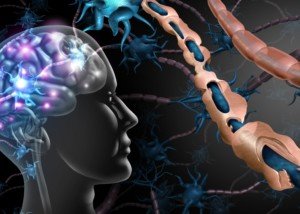
You may fear you have multiple sclerosis only to learn that it’s actually cancer; there are over 100 mimickers of MS and here are 44 of them.
“Our study shows that 30% of patients referred for suspicion of MS end up with a different diagnosis,” says a report titled “Multiple Sclerosis and Related Disorders” by Yamout et al (Sept. 2017).
“Many disorders mimic MS, and the decision of when to investigate an alternative diagnosis can be challenging,” says a paper in Current Neurology and Neuroscience Reports (Toledano et al, August 2015).
Many mimickers of multiple sclerosis don’t even involve the nervous system, though many do have central nervous system (CNS) involvement.
Some Considerations
Sometimes a person is incorrectly diagnosed with MS based on only clinical presentation and description of symptoms.
Other times the misdiagnosis comes even after imaging studies are performed. MRI results of the brain can actually come from MS mimickers, which is why there’s even a separate group of medical conditions known as “MRI mimickers” of multiple sclerosis.
Since MS comes with so very many possible symptoms, it’s easy to find tons of disorders that also can cause any given singular symptom.
But the biggest MS mimickers match up to MS with numerous symptoms and features.
Nevertheless, presenting with features of MS doesn’t necessarily translate to a misdiagnosis.
For instance, low thyroid can present with fatigue, muscle weakness, muscle stiffness and tingling/numbness in the fingers – and not necessarily with other more classic symptoms of low thyroid such as hair loss and weight gain.
But presenting to your doctor with the first set of symptoms will more likely set off the alarm bells for low thyroid (common disorder) rather than MS (uncommon).
MS Mimickers (this list is far from complete!)
• ALS
• Anti-phospholipid antibody syndrome
• Autosomal Recessive Cerebellar Ataxia type 1
• B12 deficiency
• Behçet’s disease
• Bickerstaff’s brainstem encephalitis
• Binswangers disease
• Cancer (e.g., primary and secondary brain tumor, CNS and intravascular lymphoma)
• Carpal tunnel syndrome
• Central Serous Chorioretinopathy
• Cerebral autosomal arteriopathy
• Cerebroretinal vasculopathy
• Cogan’s syndrome
• Copper deficiency
• Degos disease
• Demyelinating syndrome and myelopathy in systemic lupus erythematosus
• Eale syndrome
• Environmental toxins
• Fibromyalgia
• Giant cell arteritis
• Hypochondriasis
• Infections (e.g., Lyme, Neurosyphilis, HIV, encephalitis)
• Intracranial Germinoma
• Leukodystrophies
• Lupus (systemic)
• Migraine
• Mitochondrial diseases
• Moyamoya disease
• Myasthenia gravis
• Neuromyelitis optica
• Non-specific MRI white matter lesions
• Ophthalmological disorders
• Pinched neck nerve
• Polyarteritis nodosa
• Primary CNS angiitis
• Psychogenic (conversion disorder)
• Sarcoidosis
• Sleep apnea
• Small vessel disease of hypertension and diabetes mellitus
• Stroke
• Susac’s syndrome
• Systemic autoimmune disorders
• Vasculitis (CNS)
• Sjogren’s syndrome









































